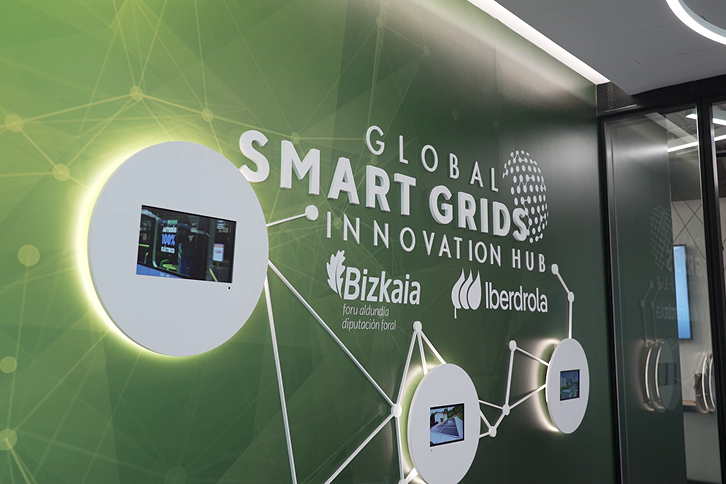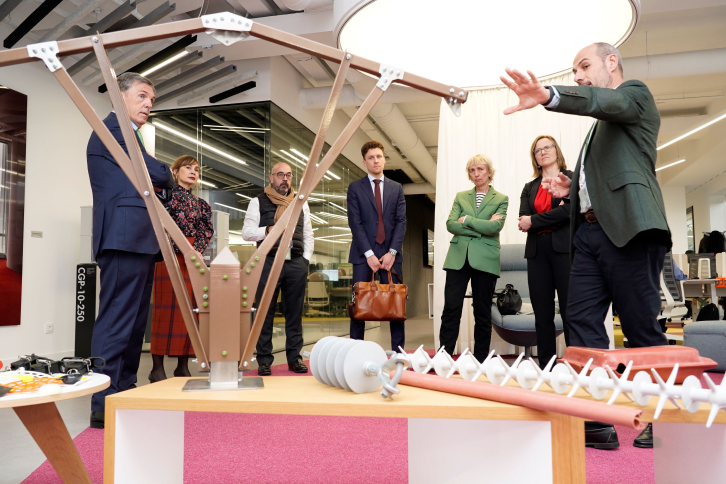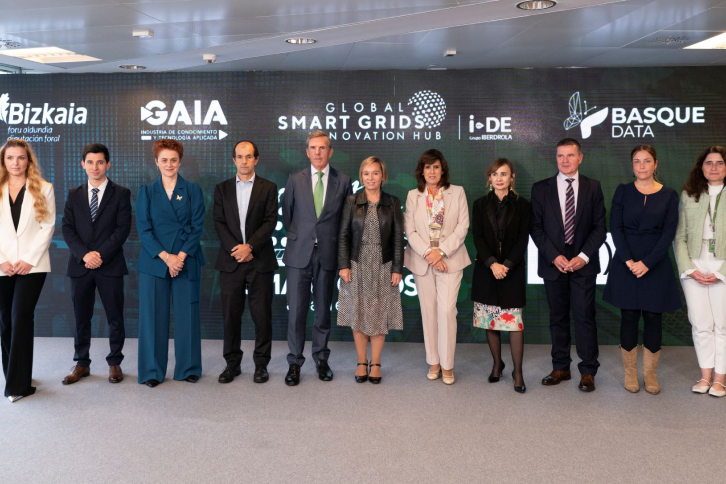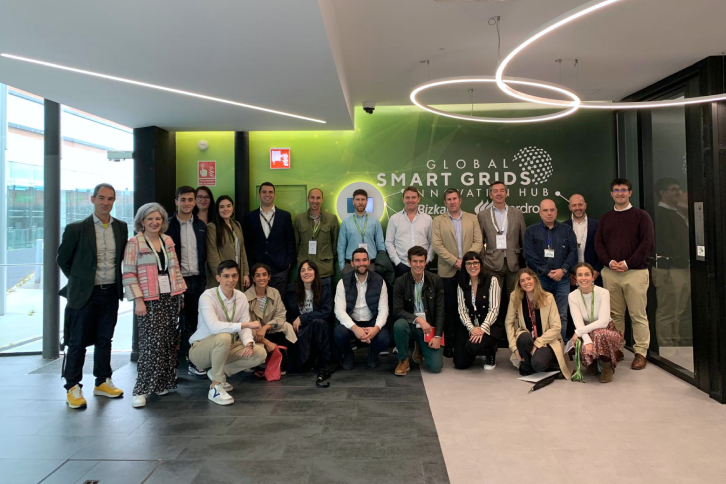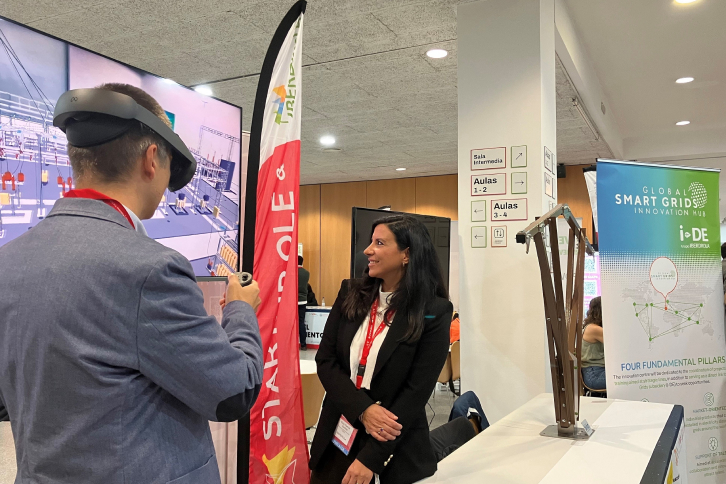Global Smart Grids Innovation Hub
Global Smart Grids Innovation Hub: Changing the present to lead the future in smart grids
Iberdrola's Global Smart Grids Innovation Hub, located in Bilbao, is consolidating its position as a global centre of innovation and knowledge in smart grids to help respond to the challenges of the energy transition. The centre acts as a driving force for innovation, combining Iberdrola's technological capacity with that of more than 100 collaborating entities and companies.

'Global Smart Grids Innovation Hub: Where innovation begins'. Video transcript External link, opens in new window..
Iberdrola's Networks Business, through the Global Smart Grids Innovation Hub (GSGIH), has created an ecosystem to promote innovation, developing talent through collaboration with universities, offering opportunities to students and preparing the professionals of the future.
The initiative brings together the innovative potential of more than 200 professionals in the development of R&D&I projects related to the challenges of the electricity grids of the future, including greater digitalisation, the processing of the data generated by these infrastructures and the response, in terms of robustness and flexibility, of the electricity grid to new consumption models, such as electric mobility and self-consumption.
In addition, the centre is established as a market-oriented collaborative technology space, where the best international talent will always be in contact with suppliers, start-ups and universities to stimulate their industrial capacity and accelerate innovation processes.
Mission: Lead the energy transition
Iberdrola wants to remain at the forefront of the energy transition by developing new business and technological models in distribution grids. The electricity system is undergoing an unprecedented transformation and the grids have become a cornerstone of the energy revolution; an essential platform for moving towards a decarbonised economy, which favours the development of an electricity system with more renewable sources, sustainable mobility, smart cities and self-consumption.
With the creation of the Global Smart Grids Innovation Hub, the group aims to double the number of smart grid innovation projects in smart grids, consolidating and expanding the current successful collaboration model with electrical equipment manufacturers. To this end, the company has identified from the beginning more than 120 projects for future development worth 130 million euros.
Since this hub was launched, R&D&I projects have been registered for a total estimated investment of 42 million euros in Iberdrola Redes España. In addition, agreements have been reached with a 100 technology partners for the development of grid digitalisation solutions, integration of renewables, deployment of electric vehicles and energy storage systems.
Proof of its relevance is the visit made by the European Technology and Innovation Platform for Smart Grids for Energy Transition (ETIP SNET) to carry out one of its Workshops, specifically the Western Region Workshop, which was attended by participants from France, Ireland, Portugal and the United Kingdom. These workshops, held in close collaboration with experts from the European Commission, aim to identify unresolved research and innovation (R&I) issues and monitor the implementation of R&I activities at national and regional level within th e EU, ensuring coherence between national and European viewpoints and stimulating knowledge exchange between participants.
Strategic lines of the Global Smart Grids Innovation Hub
 Provide new equipment for network infrastructures that enable the development of digital processes to offer the best service to our customers.
Provide new equipment for network infrastructures that enable the development of digital processes to offer the best service to our customers.
 Maintain the efficiency of distribution networks by integrating technologies such as artificial intelligence, augmented reality and digital twins into distribution processes.
Maintain the efficiency of distribution networks by integrating technologies such as artificial intelligence, augmented reality and digital twins into distribution processes.
 Include new functionalities in facilities that improve worker safety with the use of robots and drones.
Include new functionalities in facilities that improve worker safety with the use of robots and drones.
 To provide the grid with the connection of new solutions that enable flexible operation and support the electrification of the economy.
To provide the grid with the connection of new solutions that enable flexible operation and support the electrification of the economy.
 Protection of fauna and flora to seek a balance between the coexistence of infrastructures and environmental sustainability.
Protection of fauna and flora to seek a balance between the coexistence of infrastructures and environmental sustainability.
 Support an innovative technological fabric that helps to increase the resilience and security of the network.
Support an innovative technological fabric that helps to increase the resilience and security of the network.
We are promoting the development of the smart grids of the future
The activity of the centre will be structured around three main areas:

 Technological activity
Technological activity
This is the main one, defined and led by Iberdrola to strengthen its current and future knowledge and positioning in smart grids. Four strategic lines stand out within this activity
Customer service
Projects related to customer orientation.
- Advice on issues related to tariffs, self-consumption, DER, electric vehicle,, etc.
- Interaction with the network: new developments that give the client the opportunity to interact with the network more (connection/disconnection of homes, In-Home Display, virtual assistants, etc.)
Distribution system operator (DSO)
- Flexibility: projects that do not apply traditional network criteria (too conservative in terms of available capacity) and can provide the network with flexibility so that it can be operated efficiently in all scenarios and is not be as static as it has traditionally been.
- Regulation: impact, analysis and orientation towards possible regulatory mechanisms regarding climate change, electric vehicle, energy storage and losses.
New technologies
- Cybersecurity.
- Data Inventory: virtual data acquisition.
- Ecodesign: new environmentally friendly network asset designs.
- Prevention and Security: new equipment that minimises risks.
- Process efficiency: improvement of processes using new technologies (virtualisation, Edge Computing, augmented reality and artificial intelligence for fault detection, maintenance, etc.).
Smart grids
- Infrastructure: Telecommunications and Telecontrol.
- Digitization of network assets: developments on assets to have a more flexible and automated network with a higher level of monitoring.
- System renovation and integration of new functionalities to plan, operate and maintain the distribution network.
 Non-technological activity
Non-technological activity
To make the most of the local ecosystem and take advantage of future opportunities at global level. This includes scholarship, incubation and acceleration programmes and agreements with local academic institutions and global benchmarks.
 Management
Management
Control and visibility of all activities, budget control, synergies and collaborations with technological partners and Basque institutions, etc.
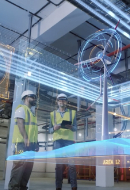
Digitisation in renewables
Digitalisation is the key to the integration of energy efficiency.

Progress on the smart grid
Telecommunications trends and applications in the smart grid.

Internet of Energy
Its aim is to automate and regulate processes.

The road to smart grids
A global transition to a green grid powered by renewables.
Start-Up challenges: Boosting collaboration with startups
One of the main features of this new hub is the collaboration with startups from around the world. Amongst other initiatives, the company has already launched four international challenges aimed at finding innovative solutions related to the area of networks.
-
-

Iberdrola invests in TRIBBU to promote more efficient and sustainable mobility
-

Technology to make our employees more safe around electrical grid infrastructures
-
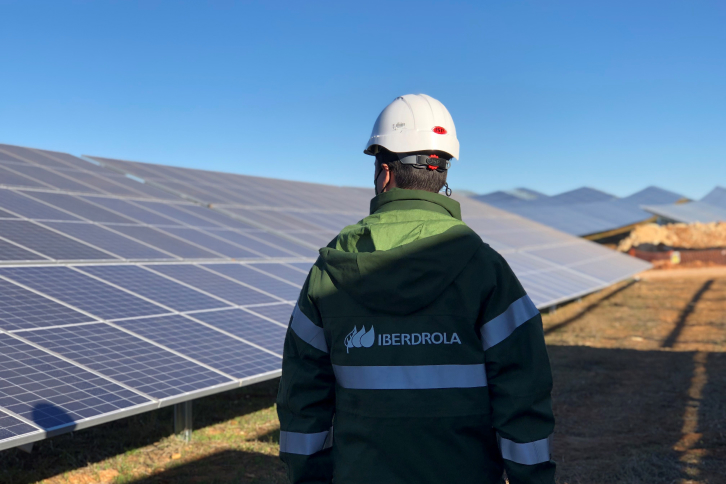
Iberdrola and ANCES join forces in the search for start-ups to drive photovoltaic tech
-
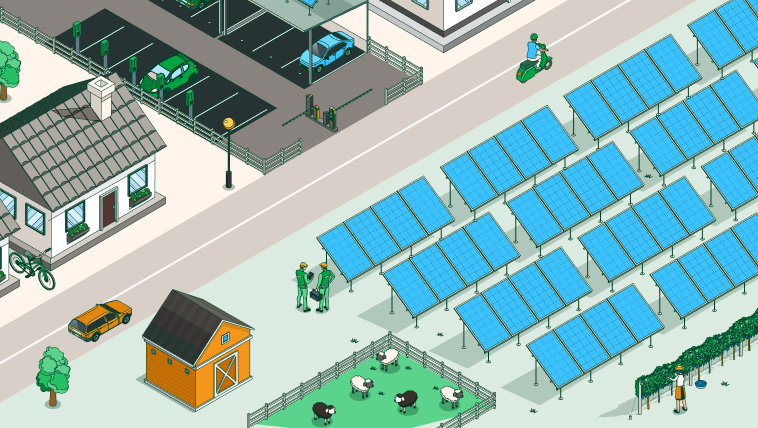
We’re looking for innovative solutions to drive the industry
-
Global Smart Grids Innovation Hub
World centre for smart grid innovation
Objetives
-
Respond to the challenges of the energy transition.
-
Combine the company's technological capacity with that of collaborators: suppliers, universities, technology centres and startups.
-
Attract the best international talent.
-
Double the Iberdrola group's projects related to innovation in smart grids.
-
+200 professionals
-
+120 identification projects worth 110 million euros
-
+1.000m² in Larraskitu (Bizkaia)
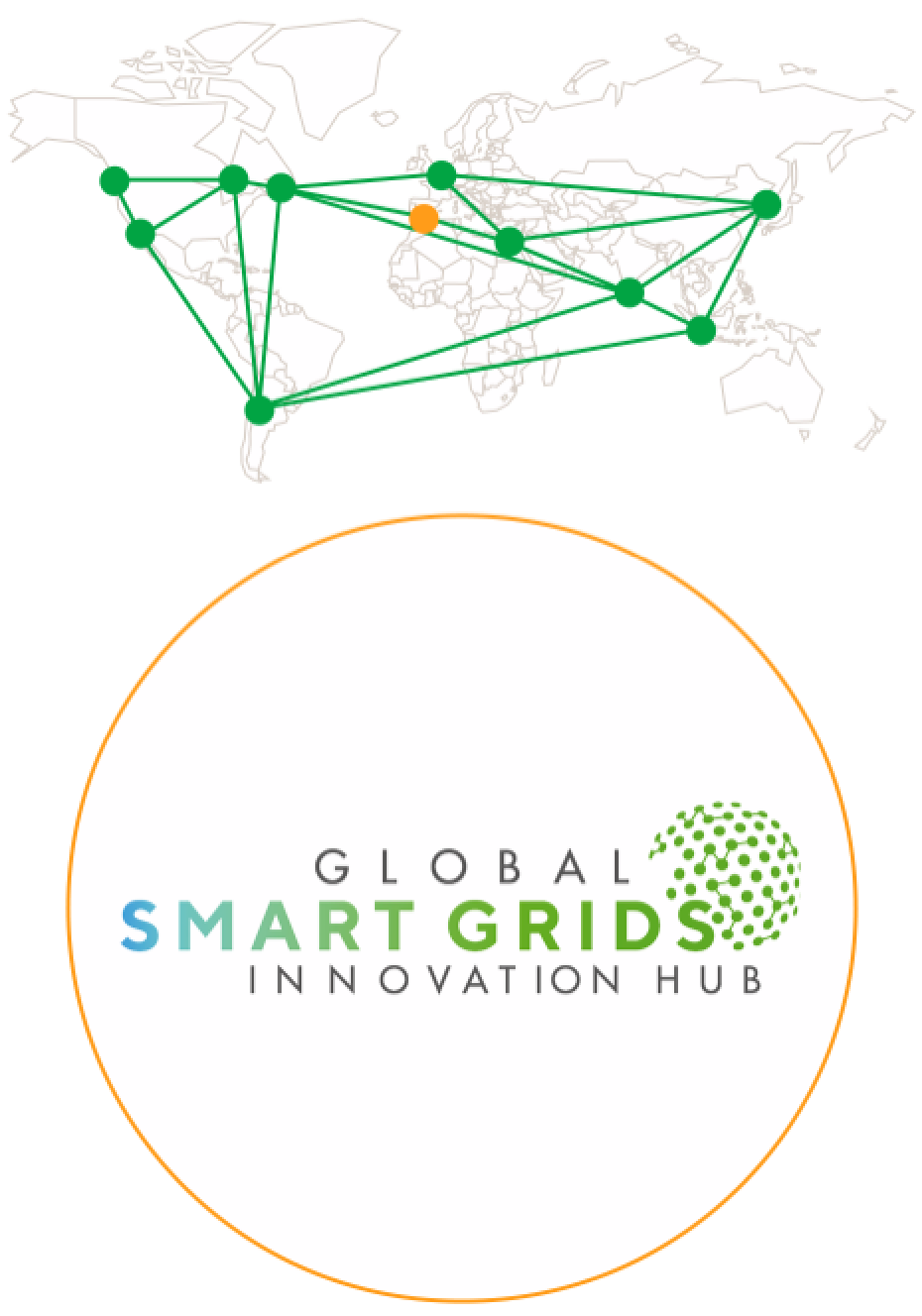
Four fundamentals pillars
The innovation centre is dedicated to the coordination of projects and training aimed at strategic lines, in addition to serving as a direct link to the Network subsidiary (i-DE) to seek opportunities.
-
Global
A global centre connected to international partners where new solutions are developed.
-
Market-oriented
Industrialisable products that can be installed in electricity distribution networks around the world.
-
Based on partnerships
A public-private alliance, with funding from the regional government of Biscay and other collaborations.
-
Attraction of talent
Aimed at accelerating collaboration and innovation to attract talent.
 SEE INFOGRAPHIC: Global Smart Grids Innovation Hub: world centre for smart grid innovation [PDF]
SEE INFOGRAPHIC: Global Smart Grids Innovation Hub: world centre for smart grid innovation [PDF]
More than 1,000 m2 to become a global benchmark for innovation
The innovation hub occupies more than 1,000 m2 at the headquarters of Iberdrola's Networks business, located in José Ignacio Berroeta Corporate Center (Bilbao), and has five laboratories for testing and speeding up developments, as well as a project development room and a creative development room, individual workstations and a coworking area, and an amphitheatre for presentations and training.
The GSGIH has the collaboration of the Provincial Council of Bizkaia, which will facilitate interaction with a dynamic, innovative and entrepreneurial ecosystem. It is also connected to the Biscay Startup Bay strategy, as it will also become a scale-up location for start-ups in the energy sector that set up in the Torre Bizkaia.





Smart Grids Academy
The Smart Grids Academy External link, opens in new window. is a pioneering platform to recruit and train smart grid professionals. Launched in 2024, it combines classroom training through master classes and collaborative projects at the GSGIH with online training through a comprehensive technological platform of the smart grid ecosystem.
External link, opens in new window. is a pioneering platform to recruit and train smart grid professionals. Launched in 2024, it combines classroom training through master classes and collaborative projects at the GSGIH with online training through a comprehensive technological platform of the smart grid ecosystem.
The project is designed to serve both our partner companies and professionals and students who want to specialise and work in smart grids. It offers each user a different learning itinerary depending on their skills and educational background. They can learn starting with the basics of smart grids and monitoring and metering with the new systems and move to current regulations, cybersecurity and how to analyse and manage the data received.
The Smart Grids Academy, developed in collaboration with the Provincial Council of Bizkaia and the GAIA Cluster, was awarded Best Digital Business Transformation Project at the DOK Summit Bilbao 2024.
Inauguration of the centre
The Global Smart Grids Innovation Hub was launched in October 2021 at a ceremony attended by the Chairman of Iberdrola, Ignacio Galán, and the Deputy General of Bizkaia, Unai Rementeria. During the event, Galán stated that "we understood before anyone else that our commitment to decarbonisation could only be a winner if we digitalised the electricity grids" and recalled that half of the 150 billion euros in the company's investment plan to 2030 will be allocated to the grids.
That same year, King Felipe VI met with the GSGIH collaborating companies, accompanied by the Basque Premier Iñigo Urkullu, the Vice-President of the Government Nadia Calviño, the Deputy General of Bizkaia Unai Rementeria, the Mayor of Bilbao Juan Mª Aburto and Ignacio Galán. The King was interested in the different projects, as well as in the development of smart grids, their sustainability, efficiency and how they will affect the quality of services.





